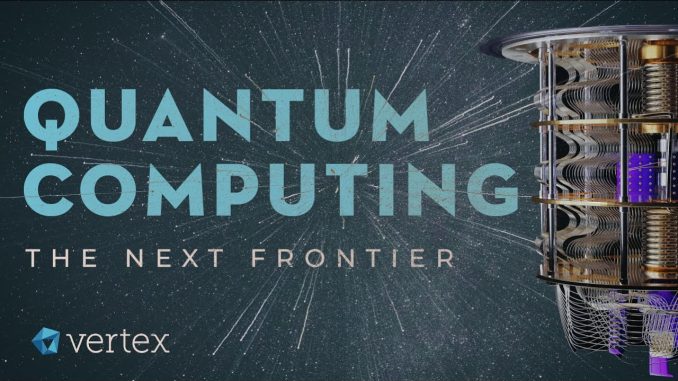
The technological landscape is abuzz with the whispers of quantum computing. As we edge closer to the precipice of what could be the next monumental shift in computing power, the implications for artificial intelligence (AI) are both profound and exhilarating.
Unraveling Quantum Complexity
At its core, quantum computing represents a radical departure from traditional binary processing. Where conventional computers use bits that represent either a 0 or a 1, quantum computers use qubits, which can represent a 0, a 1, or both simultaneously, thanks to a phenomenon known as superposition. This leap in processing potential paves the way for AI systems that could operate at speeds incomprehensible to current standards.
AI Development and Quantum Synergy
AI development stands to benefit immensely from quantum computing. Complex algorithms that require analyzing vast datasets could be executed in a fraction of the time. Quantum AI could enhance decision-making capabilities, pattern recognition, and even language processing, pushing the boundaries of what’s possible in machine learning and neural networks.
Overcoming Classical Limitations
Today’s AI is often hamstrung by the computational limitations of classical computers. Tasks that involve non-linear systems, such as weather forecasting, can be vastly improved with quantum computers. They can handle an exponential amount of variables compared to their classical counterparts, offering a glimpse into a future where AI can calculate outcomes that we can barely fathom now.
Quantum Computing’s Role in Data Security
As we usher in advanced AI, data security becomes a critical issue. Quantum computing could revolutionize encryption, rendering current standards obsolete. However, it also offers the potential for unbreakable encryption methods, creating a dual-edged sword in cybersecurity — a battleground where AI will undoubtedly play a central role.
Enhanced Machine Learning Through Quantum Speed
Quantum computing promises to fast-track the learning phase of AI development. Quantum algorithms can analyze and process information at unprecedented rates, which means machine learning processes that once took weeks or months could potentially be reduced to days or even hours.
The Quantum AI Horizon
What does the future hold for AI in the quantum realm? We are looking at AI that can solve complex scientific problems, revolutionize drug discovery, and create more intricate artificial neural networks. The union of quantum computing and AI holds the promise of computational capabilities that could surpass the collective intelligence of humanity.
Investment in Quantum Research
Recognizing the immense potential, governments and private sectors are heavily investing in quantum computing research. These investments are not just about gaining a competitive edge; they are about shaping the future of AI and technology as a whole.
Challenges in Quantum Development
However, the journey is not without its hurdles. Quantum computing technology is still in its infancy, and practical, scalable quantum computers are yet to be a reality. The fragility of qubits and the challenge of maintaining them in a state of quantum coherence is a significant barrier that researchers are diligently working to overcome.
Quantum Algorithms and AI
The development of new quantum algorithms is central to advancing AI. These algorithms must be designed to take full advantage of the properties of qubits, and creating them requires a deep understanding of both quantum physics and computer science.
Ethical Implications
With such power comes great responsibility. The ethical implications of AI that can process and analyze data at quantum speeds must be carefully considered. The potential for invasions of privacy, biases in decision-making, and the creation of autonomous weapons systems are ethical challenges that must be addressed.
The Race for Quantum Supremacy
Nations and corporations are in a race for quantum supremacy — the point at which quantum computers can perform tasks that classical supercomputers cannot. This race is not just about processing power, but also about leading the next wave of AI development.
Preparing the Workforce
The integration of quantum computing with AI will require a workforce skilled in new technologies. Education systems must adapt to prepare the next generation of computer scientists and AI developers for the quantum leap.
Interdisciplinary Collaboration
The complexity of quantum computing and its integration with AI necessitates interdisciplinary collaboration. Experts in mathematics, physics, computer science, and ethics must work together to ensure the responsible and effective development of quantum AI technologies.
The Quantum Impact on Industries
No industry will remain untouched. From finance to pharmaceuticals, quantum AI will provide the capability to solve problems and create solutions that are currently impossible. This will drive innovation and could lead to the development of new industries entirely.
Quantum Cloud Computing and Accessibility
Quantum computing resources are likely to be made available through the cloud, allowing for wider accessibility. This means that the power of quantum AI could be at the fingertips of developers across the globe, democratizing the technology.
Conclusion: A Quantum Leap for AI
Quantum computing has the potential to be the next frontier in AI development. It promises to bring about a revolution in processing power, which will exponentially increase the capabilities of AI. While there are significant challenges ahead, the advancements in quantum computing will undeniably transform the way we think about and interact with artificial intelligence.